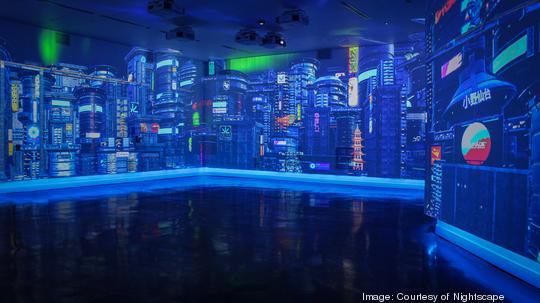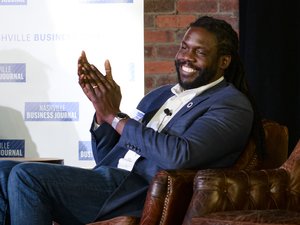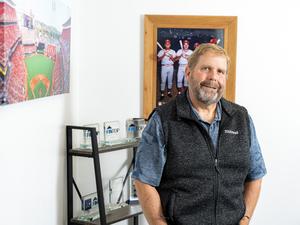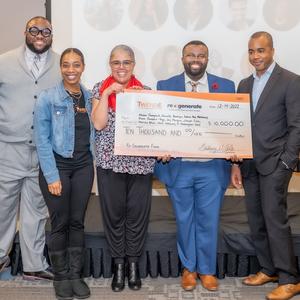
Local entrepreneur Mike Weinberg is bringing video game development technology into a surprising sector: real estate.
The 29-year-old Los Angeles native, who moved to Nashville in 2015, owns Nightscape, a startup that says it melts the divide between physical and virtual spaces through event venues, creative services and other projects. In Nashville, it began with a Gulch facility, but the company soon took a new direction.
Nightscape’s 12th & Porter venue opened this spring. Weinberg leased a building across from The Mockingbird restaurant and started running an event space that created real-time, video game-esque visuals — everything from bustling Tokyo nightlife scenes to peaceful mountainscapes — and projected them onto four blank walls. He was successful, speedily booking album release parties, concerts and more.

But in April, Weinberg connected with a new type of client: a large northeastern real estate development company. The firm was building a 1,000-acre mixed-use development, and potential tenants were having trouble picturing what a project of that size would look like when standing. It needed a model that went deeper than a flat architectural rendering.
“After that conversation, that’s when I realized that there was a much, much larger market than I had realized,” Weinberg told the Business Journal.
So Weinberg and his team got to work, using Unreal Engine, the software responsible for video games like Fortnite, to create an interactive virtual model for the East Coast developers. The project is still in progress right now, Weinberg said.
Developers often pay thousands of dollars for two-dimensional architectural drawings of their proposed real estate projects, and the photos can expire quickly as design plans change. But with Weinberg’s model, real estate firms pay an upfront cost starting at $20,000 for what is essentially a video game version of a real estate project. It’s a real-time, interactive virtual world that can be updated moment-to-moment and viewed through a link, or projected onto the walls at Nightscape’s Gulch location.
“This is a live, living, breathing world,” he said. “You’re basically in the inside of a video game.”
We could start to see the concept pop up here in Nashville. Weinberg started marketing his model to local real estate developers about four weeks ago. So far, interest is strong, and conversions are progressing quickly, he said.
Depending on how fleshed out a real estate project is, creating the model doesn’t take that long, either. Weinberg estimates that it would take four to six weeks to build a model of a large hotel lobby — and even less time if there were multiple video game developers working at once.
Interacting with Weinberg’s model feels a lot like moving through any video game — birds chirp, waves crash, plants rustle, fountains trickle and get louder when approached. Weinberg is even working to implement technology that pulls real-time weather data from various locations and puts it in the model.
The Gulch event venue is still an important part of Nightscape’s overall business. But when it comes to creative services, it was obvious that the startup should focus on its new real estate arm, Weinberg said.
Real-time rendering, which is the technology that Nightscape uses, is quickly taking over more and more industries, Weinberg said. It used to be reserved for video game development, but recently, television shows like "The Mandalorian" have been using the technology in lieu of green screens.
“It just changed what was possible,” Weinberg said. “In the next five or ten years, there will still be photo or video renderings, but most or all of them should be coming out of the actual, real-time models.”








